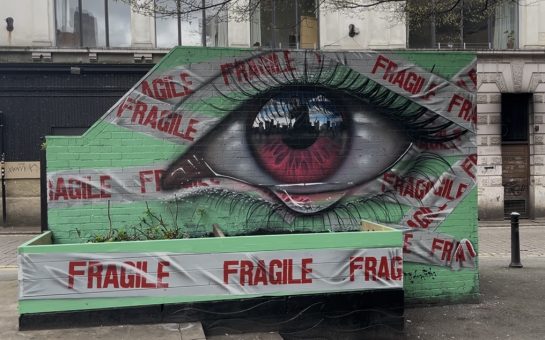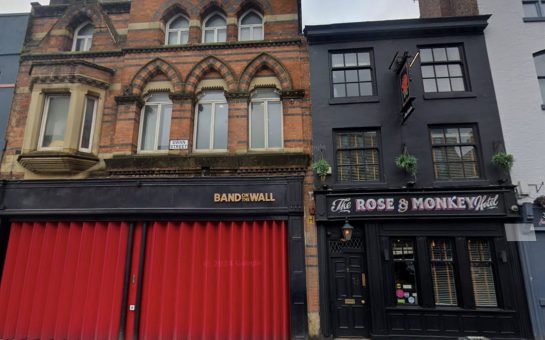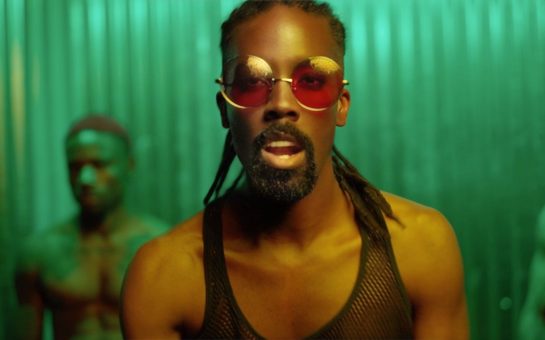Founder of Manchester’s first LGBTQ+ bookshop talks representation in literature, the overwhelming response to the shop, and the debate over the LGBTQ-inclusive curriculum
He may not have baked banana bread or learnt a new language, but Matthew Cornford’s experience of lockdown was far from unproductive.
Recognising a lack of LGBTQ+ literature available online, he set up Queer Lit’s digital marketplace back in September 2020.
Matthew said: “This sounds bad because obviously it’s a horrific event throughout the world, but for me the pandemic gave me an opportunity to go, right, actually, I can’t do anything else, I can’t leave the house, I can tunnel vision myself to just do this one job.
“There’s still a dent in our sofa from where my arse didn’t move for nearly five months.”
Launching with 700 titles, the online store’s collection rapidly grew to over 1,500, with sections dedicated to LGBTQ+ history, Drag content, bisexual stories, gender stories, coming out stories and more.
Queer Lit’s success story didn’t stop there — Matthew and his team opened an on-the-ground store in the Northern Quarter in late August of this year.
The idea for Queer Lit, which is Manchester’s first dedicated LGBTQ+ bookshop, was born after Matthew visited Deansgate Waterstones last February.
He wanted to read more queer literature, but despite the store priding itself on being ‘the biggest bookshop in the North of England’, there wasn’t a section dedicated to LGBTQ+ literature.
Matthew decided things had to change.
He said: “Pride month comes and they take up the whole front page with a Pride banner, but for the rest of the year they won’t even put a dropdown link for LGBT books.”
The pandemic had forced major retailers of LGBTQ+ books such as Gay’s The Word to close their doors — and they didn’t have an online marketplace.
Queer Lit filled that gap during the national lockdowns and quickly built up a loyal following.
The birth of Manchester’s first LGBTQ+ bookshop
Matthew’s travelled all over the UK with work — so why did he choose Manchester for the on-the-ground store?
“For the queerness of Manchester, it felt like home compared to anywhere else that I’ve been,” he said.
Manchester’s first LGBTQ+ bookshop proved a huge success so far, with customers travelling from far and wide to browse its shelves.
Matthew said: “The response has been crazy.
“I hoped the opening weekend would be busy, but we were opening on Pride weekend where everybody’s kind of centered around the Village — that’s kind of the beacon, so we were asking people to come away from Pride to come and see us.
“And we sold just shy of 16,000 books, which is half of this shop.”
Matthew knew he didn’t want to open the shop on Canal Street — despite loving the area, he was looking for somewhere less alcohol-driven where families might stumble across Queer Lit and discover their range of inclusive children’s books.
“As much as it’s wonderful having sections for romance and travel and memoirs, actually some of the most important stuff in literature is in the children’s section, where young people can read a book that they can see themselves in and understand that it’s not a problem,” Matthew said.
Why does he think LGBTQ+ representation in literature is so important?
“Because it stops kids from trying to take their own lives,” he said.
“I never had a bad upbringing, but I know people who did, and I lived through Section 28 where we were never educated about LGBTQ+ issues.
“Look at these young trans and non-binary people — there’s a higher rate that attempt suicide, because they have no-one to talk to, there’s no literature, or previously there hasn’t been a large amount of literature that they can see themselves in and go: ‘this is okay, this isn’t wrong, this isn’t dirty and I’m not wrong, I’m not dirty, it’s just something I need to better understand for myself’.”
Matthew himself got into reading when he was about 15, making his way through a book every couple of weeks.
However, no matter how much he read, he never picked up a book and saw himself within the literature.
Matthew said: “I never found anything that positively spoke about me and the thoughts and feelings I was having at 13.
“I didn’t come out until I was about 18 — so just think, if I knew at 13, there was something, there was some internalised shame, that was stopping me coming out.
“For five years I wasn’t myself.”
The need for an inclusive curriculum
Discussing the ongoing heated debates about an LGBTQ-inclusive curriculum being taught in schools, Matthew said kids aren’t too young to be educated on anything.
“It’s the dogma we put in front of them that restricts education,” he said.
“We say ‘knowledge is power’ — at what point do we restrict that?
“If I’ve got a 5-year-old and a 16-year-old, I can say to my 5 year old, ‘Oh, your sister has a boyfriend now, isn’t that exciting?’ — if that’s okay for a heterosexual relationship, why would I not say she’s got a girlfriend?
“And you know, great, there might be things we can’t teach kids about — there are books in this shop that deal with abuse, sexual abuse, mental abuse, physical abuse, lots of different types of trauma.
“But you don’t see that in the children’s books.
“So, is anything on our children’s literature shelves going to harm a child?
“No — all that bookcase down there is going to do is give them a more open and versatile mind about the fact that not everybody’s the same.
“That bookcase down there isn’t necessarily just aimed at LGBTQ+ children — it’s aimed at making allies.”
Lots of the children’s books may not necessarily have queer main characters, but they might have some queer characters that appear through the story.
“That just helps normalise in the mind of a child that, ‘hey, there are queer people out there, just get on with it’ — and that’s how allies are built, because if it’s just an everyday thing then nobody cares,” Matthew said.
This is also why Queer Lit runs its Free Books For Schools program, a not-for-profit scheme that puts inclusive books into schools ‘so young LGBTQ+ people and allies can see themselves within the literature they read’.
Customers have the ability to donate to the fund at the checkout of the online store, allowing the shop to donate around 100 books a month to secondary schools through the program.
Matthew and the team select three books each month, which they distribute to schools across the UK to help them better engage with a diverse literature.



